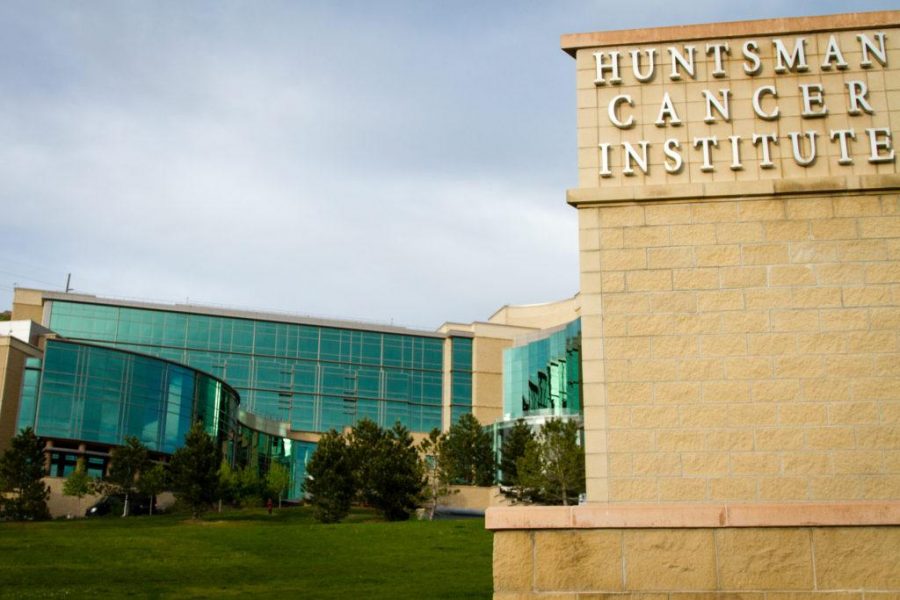Cushman: Utah Needs to Expand Healthcare Access
The Hunstman Cancer Institute at the University of Utah, Salt Lake City, UT, on May 5, 2017.
March 4, 2021
When I was in elementary school, my mom had cancer. I was only ten, so I didn’t understand what was going on and how serious it was. What I did understand, however, was the emotional toll it took on my mom and my entire family. Cancer is a hard disease that steals a lot from its patients — from dignity to fertility. When I spoke to Rep. Raymond P. Ward about H.B. 192, he explained that his son’s experience of fertility loss as a cancer patient prompted him to introduce the bill. H.B. 192 has the potential to change the lives of cancer survivors by expanding access to fertility-preserving healthcare.
Cancer’s effects are farther reaching than many people expect. It’s incredibly humbling to be put into such a weak position and it often leaves survivors with unique fears and anxiety for years to come. For cancer survivors looking to start a family, it can be especially hard. While research on how cancer patients view parenthood is just getting started, it has been shown that cancer patients are often extremely worried about parenthood leading to cancer recurrence or having a child with cancer or birth defects as a result of their cancer. Their journey to parenthood is riddled with this excess worry and panic.
For some cancer survivors though, the journey to parenthood also seems impossible, as cancer treatment can lead to infertility in both men and women. Infertility is not uncommon among cancer survivors, with the probability of parenthood in young adults with early-onset cancer being reduced by about 50%. By expanding insurance to cover fertility preservation, H.B. 192 aims to address this directly. If passed, young men and women diagnosed with cancer would still be able to one day start their own families. This aim is in and of itself a noble cause, but H.B. 192 is only one step in making healthcare accessible to Utahns.
A report compiled by Altarum Healthcare Value Hub ranked Utah 35 out of 42 states and the District of Columbia when it comes to healthcare affordability. Perhaps because of Utah’s Republican supermajority or perhaps because healthcare is hard to legislate at the state level, it feels like legislation to expand healthcare access is often a low priority for our state legislators during Utah’s short legislative session. In 2019, for example, after voters approved a ballot initiative to expand Medicaid, our legislators scaled back the expansion, instead of enacting a plan that covered thousands of fewer people than the original ballot initiative. Despite a lack of expansive legislation, healthcare affordability is the top priority for Utah residents of both parties. After all, more than half of Utahns struggle to afford healthcare. Regardless of why our healthcare remains so unaffordable, it seems like there is a serious disconnect between the priorities of our legislators and our priorities as voters.
While speaking to me about his bill, Ward, who is a Republican, justified this potential expansion of healthcare coverage by explaining how Medicaid and other insurances currently cover other kinds of cancer treatment-related injuries, like breast reconstruction, and that his bill simply aims to make that same kind of coverage the standard for patients who lose their fertility to cancer treatment. Though this is certainly justification for expanding access to healthcare, it should be enough that Utah voters want more affordable, accessible healthcare.
Furthermore, in Utah, we often talk about family values and what they look like. From Ward’s perspective, it’s only logical that Utah, as a “pro-life state,” would expand insurance to cover fertility preservation for cancer patients. I would take that a step further. How can we say we are a state that cares about family values if we do not help cancer survivors become parents when they would like to or if we do not provide adequate healthcare for the thousands of families who call Utah home? Cancer patients deserve good healthcare, but so do other Utahns facing their own health struggles.
Though H.B. 192 specifically addresses the healthcare needs of cancer patients, it is a reminder that healthcare affordability is a real problem for the people of Utah. While making healthcare access more equal is something we prioritize as constituents, it is not something that our legislature spends enough time or money on. Moving forward, we need to demand that our leaders push for the change we want to see — healthcare affordability and accessibility.








